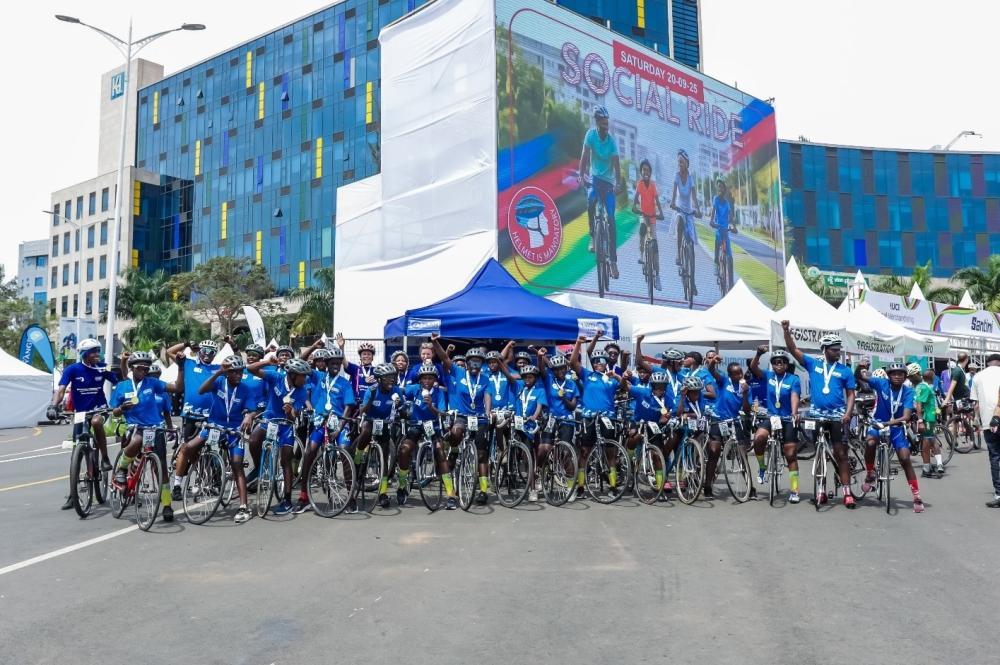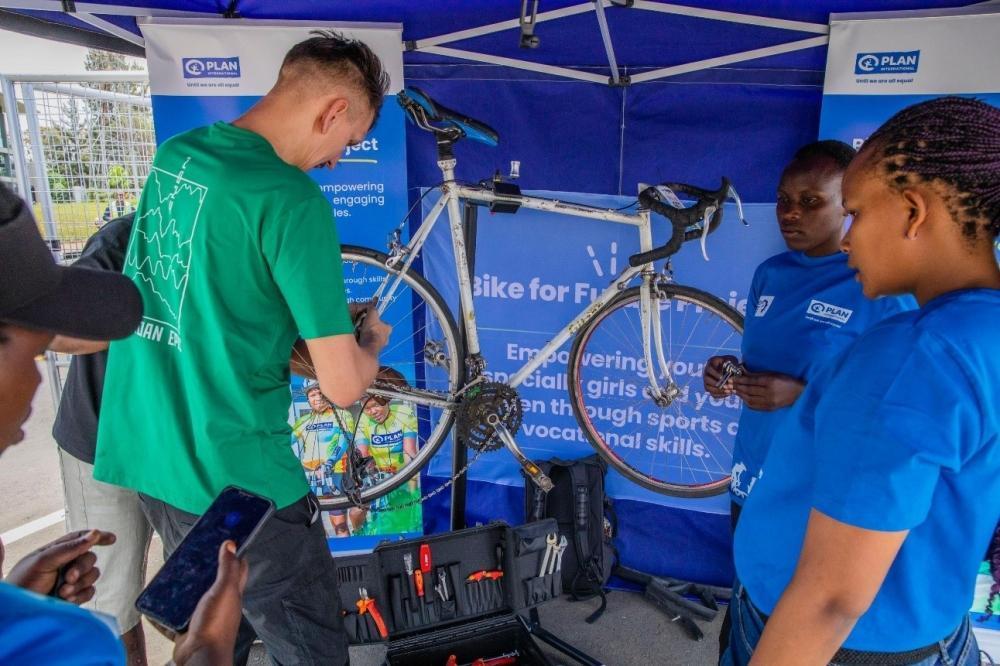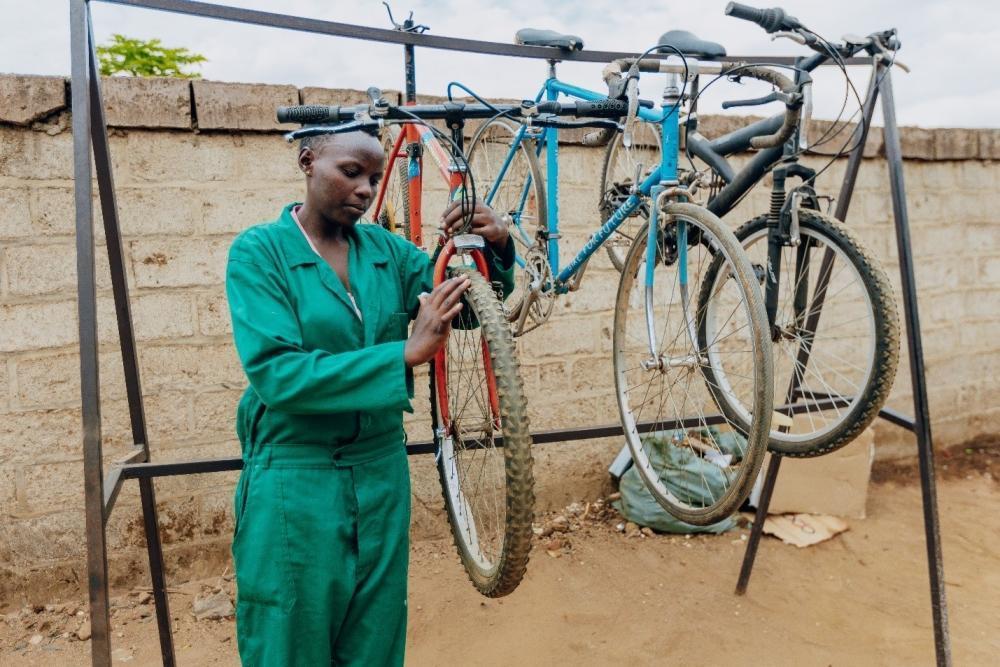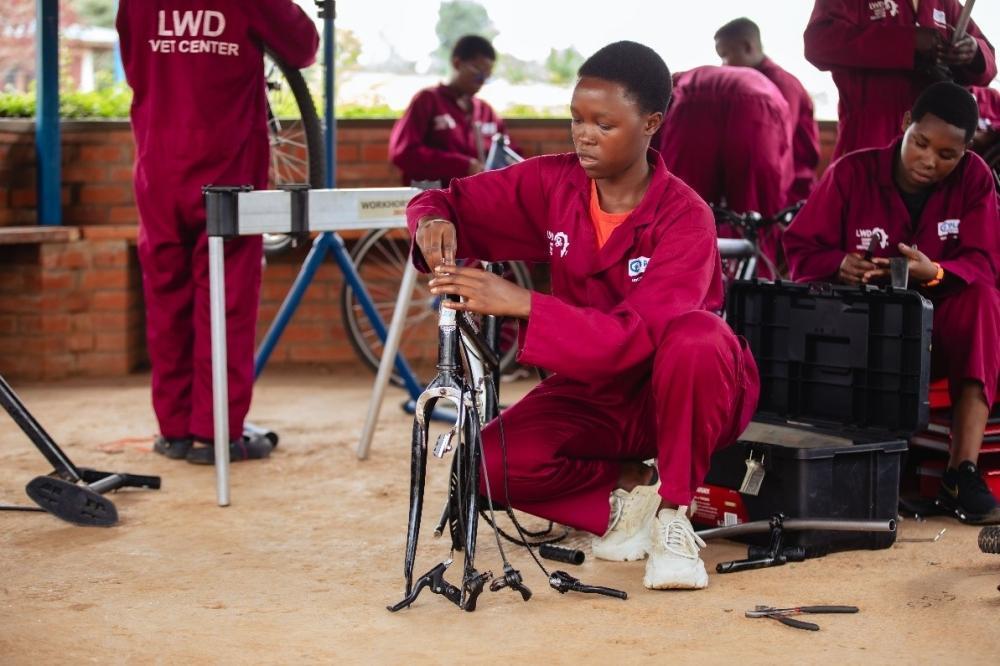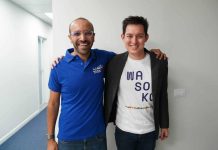Africa-Press – Rwanda. When the UCI Road World Championships came to Rwanda, the first time the global cycling event has ever been staged in Africa, the world’s eyes were fixed on the peloton racing through Kigali’s hills. Yet behind the spectacle of elite athletes, quieter but equally powerful stories were unfolding: the rise of young Rwandan women as skilled bicycle mechanics and aspiring professional cyclists, thanks to the Bike for Future project.
Among them was 21-year-old Shemsa, a single mother who once believed her dreams had ended prematurely. Forced to leave school after giving birth, she struggled to support her child, until she enrolled in a vocational training programme that transformed her life.
“I joined after hearing they were enrolling participants at the sector office. I was given the chance to study bicycle mechanics, and now I repair bikes and sell spare parts,” she said.
At the 2025 Championships, Shemsa stood proudly at the Kigali Convention Centre, tools in hand, working on bicycles ridden by elite athletes.
“It was emotional,” she recalls. “I felt proud repairing bikes for the world’s best cyclists. Some people think mechanics is only for boys, but that’s not true. Work is work. My dream now is to study advanced mechanics.”
Shemsa is not alone. Françoise, 21, has also mastered her craft.
“I can now repair modern sports bicycles, which is rare in my community. This knowledge is a big step forward, and I’ll use it to change my life,” she explains.
For Oliva, the project has been life-changing. Orphaned and the sole caregiver for her younger siblings, she once felt trapped by poverty.
“Before, I had no way to support my brothers. But today, I work every day and can pay for health insurance. I dream of a better future, and one day, I want to be recognised as one of Rwanda’s top mechanics.”
Launched in 2023, Bike for Future equips young people not only with cycling and mechanical skills, but also with training in welding, tailoring, ICT, and plumbing. Sixty percent of its participants are girls.
Janviere, 21, chose welding after finishing secondary school, despite her community telling her it was a male-dominated career.
“I can now make metallic doors and windows. At first, people discouraged me, but I love this profession. One day, I want to run my own hardware store,” she said.
Nurturing girls’ through professional cycling
For Cynthia, 16, once ridiculed for riding a bicycle, the transformation has been profound.
“In my community, people used to say a girl could never be a cyclist. But today, I ride professional bikes. When I train, they watch and support me. It proves that my talent matters and can bring change,” she said.
Amina is part of the Bike for Future cycling team, which currently trains 40 young riders, 35 girls and 5 boys. They compete in events like the Youth Racing Cup and recently joined the Kigali Social Ride during the UCI Championships.
“Participating in all these races boosted my confidence. When I race, I want to show the world that girls can win too,” Amina added.
Amina shares that she has competed in up to 25 local cycling competitions and proudly holds two medals, experiences that have fuelled her confidence and strengthened her hopes for a future professional career. As part of the Bike for Future cycling team, she trains twice a week, a routine that helps young riders sharpen their skills and stay focused on their goals.
Partnering for girls and young women’s safe futures
“For Emilie Fernandes, Country Director of Plan International Rwanda, the presence of girls at the Championships, and the broader effort to empower young people, especially girls and young women, through vocational training, sends a powerful message.”
“We are preparing role models who show other girls they can excel. This is about sport for change. We’re training professional cyclists and mechanics, but also equipping them with vocational skills to improve their livelihoods. The impact is clear, many are winning awards, while others are building careers.”
Fernandes remarked that as Kigali shines under the global spotlight of the UCI Road World Championships, these young heroines remind the world that empowerment is not only about medals, but also about dignity, livelihoods, and hope.
Jean Claude Mwiseneza, Executive Director of Learn Work Develop Rwanda, echoed the ambition.
“We aim to transform young people’s livelihoods. Our focus is on four pillars: economic empowerment, wellbeing, challenging gender stereotypes, and working with the private sector. We want to show the world that girls can do what boys can do.”
Implemented by Plan International Rwanda in partnership with Learn Work Develop (LWD) Rwanda, and funded by partners including Belgian corporates such as Bioracer, Golazo, Lazer, Delaware, Velo Afrique, Kigali Water Limited, Laureus Sport for Good, and backed by the Agence Française de Développement (AFD) and the International Olympic Committee, the Bike for Future project has become a beacon of opportunities for young people, especially girls and young women.
The project targets 60% girls and 40% boys. Through its implementation, it has reached 40 participants in cycling (35 girls and 5 boys), 107 participants in vocational training (welding, bicycle mechanics, tailoring, plumbing, and ICT), 60 participants in basketball (40 girls and 20 boys), and 30 girls in volleyball.
For More News And Analysis About Rwanda Follow Africa-Press

